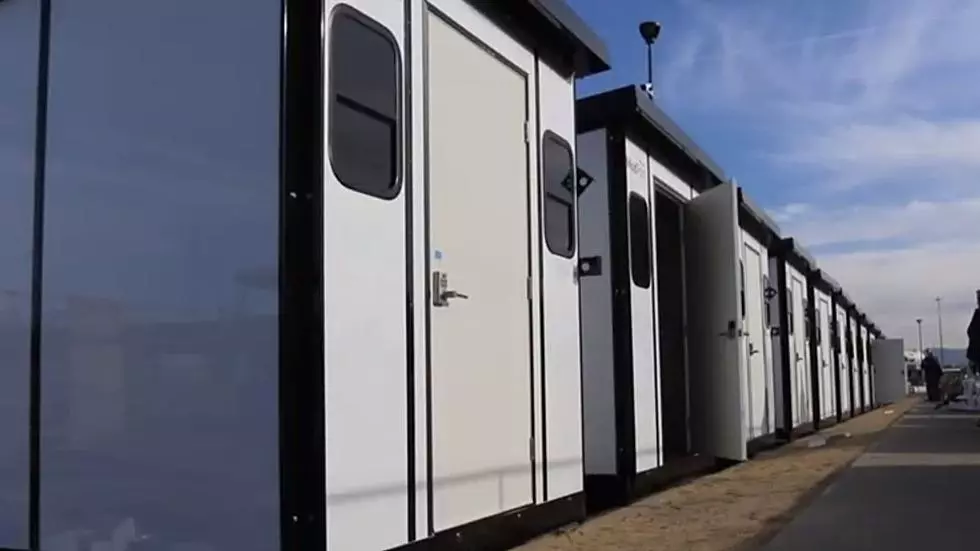
Here’s What Michigan’s $70 Billion Budget does for Battle Creek and Kalamazoo
As the new bipartisan state budget heads to the governor’s desk we are learning more about how available funds are being allocated across the state and locally.

The Michigan House of Representatives passed a budget that includes historic investments in health care, child care, and infrastructure. It also provides $1 million to make repairs to Battle Creek City Hall’s facade. Area State Rep. Jim Haadsma said The Battle Creek City Hall has needed improvements and repairs made for over four years, but the city has been unable to make them due to limited funds available.
State Rep. Matt Hall voted to approve a budget plan for the upcoming fiscal year that he notes makes critical investments for people in Calhoun and Kalamazoo counties. The budget proposal funds crucial services while ensuring the state emerges in strong shape from the COVID-19 pandemic and executive orders in response. Hall highlighted a continued commitment to public safety within the plan, including nearly $5 million in new funding to ensure local and secondary road patrols are fully funded. An additional $4.9 million will be set aside for a Michigan State Police (MSP) trooper recruit school and $4.5 million will be used for professional development within MSP.
Other features of the budget supported by Hall include:
- $12.9 million for EMS rate increases. Hall and other legislators advocated for the increase, as EMS agencies only receive reimbursement for 10 to 25 percent of their costs. Wage increases for direct care workers on the front lines of the battle against COVID-19 are also included in the budget plan.
- A total of $150 million to keep the state’s Unemployment Insurance Agency trust fund viable and ensure small businesses are not on the hook for a tax increase.
- The $195 million shares of federal COVID relief funds for the Michigan Department of Transportation will be shifted to local governments for needed repairs to infrastructure. The overall MDOT budget is over $5 billion.
- A total of $1.5 million for development at the Portage Senior Center, as well as $2 million for renovations to the McCamly Plaza Hotel in downtown Battle Creek.
- A total investment of roughly $100 million into workforce development, including Going PRO, Michigan Reconnect, internships, and apprenticeships, to boost training opportunities and help diversify the state’s talent base.
- Continuing a commitment to strengthening Michigan’s economy and leveling the playing field by helping small businesses save on federal taxes.
State Senator John Bizon, M.D. also voted to support the fiscal year 2022 general budget plan focused on increasing investments to support Michigan families and build up a healthy economy that benefits everyone.
Bizon said the 2022 state budget includes $23.8 million for the Michigan Career and Technical Institute in Barry County to fund desperately needed capital improvements to continue in its mission to prepare students with disabilities to enter the workforce with vocational-technical training programs and post-secondary certificates; $14.3 million in High Water Infrastructure Grants for local governments to address immediate high-water infrastructure needs; and $300,000 for the IBM/Kalamazoo Reentry Services Pilot Project.
Another highlight from the budget agreement also calls for Secretary of State branch offices to open for in-person walk-in services without an advance appointment and includes language that ensures no government entity, department, or agency receiving funding will require proof of vaccination to access state services or release an individual’s vaccination status.
Senate Bill 82 is the general omnibus budget and features:
- $1.4 billion to lower rates and recruit more childcare workers;
- $414.5 million to permanently increase wages for direct care workers;
- $40 million for the Going Pro program to support employee training;
- $55 million for the Michigan Reconnect program to provide tuition-free community college and training;
- $40 million for the Pure Michigan tourism campaign;
- $33 million to train new state police troopers and corrections officers;
- $14.5 million to local governments to remove PFAS from the water;
- $190 million to repair or replace local bridges; and
- $19 million to repair or replace local dams.
Bizon said the $21.1 million in funding for new corrections officer training will allow for the training of up to 800 new corrections officers, 280 more than previous years. Additionally, $2 million will support wellness programming designed to assist prison staff and their families with the stresses that come with working in a prison.
Ionia County and the cities of Portland and Belding will receive the $58,400 remainder of disaster relief funding to cover costs incurred from the 2019 Portland ice jam flooding event. The communities were allocated most of the $163,625 designated relief funds in the 2020 state budget.
The bill also deposits $500 million in the state’s rainy-day fund and $150 million in the unemployment trust fund to increase solvency due to fraudulent benefit payments.
On Wednesday, Bizon joined the Senate in approving House Bill 4400, which includes increases for community colleges and public universities and $86 million to reduce university MPSERS obligations, which would build on the $140 million in the already-signed K-12 budget to reduce school unfunded liabilities.
SB 82 and HB 4400 complete the 2022 state budget that began with the July signing of the K-12 budget, which provided a record level of state school funding for the current school year and boosted every school district’s foundation allowance up to at least $8,700 per student.
Following approval by both legislative chambers, the bills will be sent to the governor for her signature. Michigan’s 2022 fiscal year begins Oct. 1.
The legal system can be fascinating. Laws are changing every day. Check out the list of laws below to see which notable ones were passed the year you were born.
LOOK: What major laws were passed the year you were born?
More From 107.7 WRKR-FM









